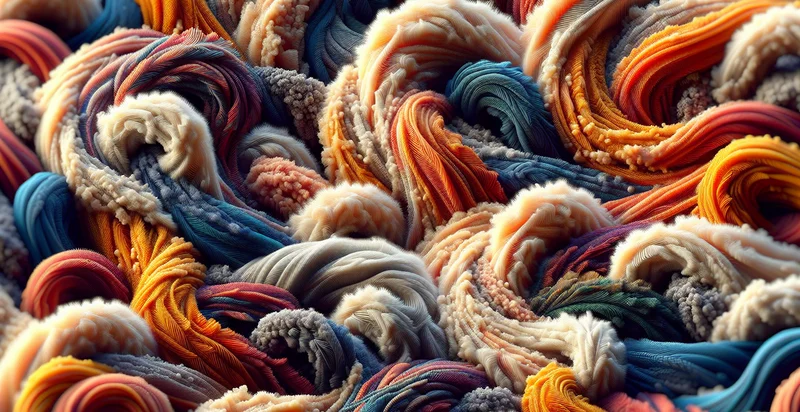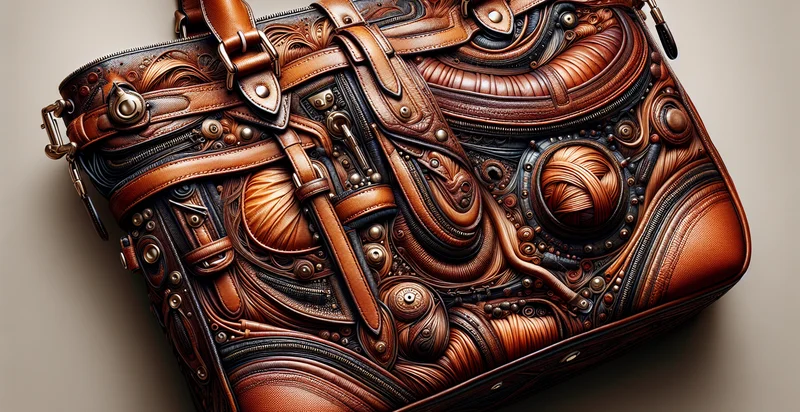Identify what material a sweater is made from
using AI
Below is a free classifier to identify what material a sweater is made from. Just upload your image, and our AI will predict what material a sweater is made from - in just seconds.

Contact us for API access
Or, use Nyckel to build highly-accurate custom classifiers in just minutes. No PhD required.
Get started
import nyckel
credentials = nyckel.Credentials("YOUR_CLIENT_ID", "YOUR_CLIENT_SECRET")
nyckel.invoke("what-material-a-sweater-is-made-from", "your_image_url", credentials)
fetch('https://www.nyckel.com/v1/functions/what-material-a-sweater-is-made-from/invoke', {
method: 'POST',
headers: {
'Authorization': 'Bearer ' + 'YOUR_BEARER_TOKEN',
'Content-Type': 'application/json',
},
body: JSON.stringify(
{"data": "your_image_url"}
)
})
.then(response => response.json())
.then(data => console.log(data));
curl -X POST \
-H "Content-Type: application/json" \
-H "Authorization: Bearer YOUR_BEARER_TOKEN" \
-d '{"data": "your_image_url"}' \
https://www.nyckel.com/v1/functions/what-material-a-sweater-is-made-from/invoke
How this classifier works
To start, upload your image. Our AI tool will then predict what material a sweater is made from.
This pretrained image model uses a Nyckel-created dataset and has 18 labels, including Acrylic, Alpaca, Angora, Bamboo, Blend, Cashmere, Cotton, Fleece, Linen and Microfiber.
We'll also show a confidence score (the higher the number, the more confident the AI model is around what material a sweater is made from).
Whether you're just curious or building what material a sweater is made from detection into your application, we hope our classifier proves helpful.
Related Classifiers
Need to identify what material a sweater is made from at scale?
Get API or Zapier access to this classifier for free. It's perfect for:
- E-Commerce Product Classification: This function can automatically classify sweater listings based on the materials used, improving search filters and enhancing the user experience. Customers can quickly find products made from specific fibers, such as cotton, wool, or synthetic blends, leading to higher conversion rates.
- Sustainability Reporting: Retailers can leverage this function to gather data on the materials used in their sweater collections, aiding in sustainability initiatives. By identifying the percentage of natural versus synthetic materials, businesses can better align their offerings with eco-friendly practices and marketing messages.
- Inventory Management: Retailers can utilize the material identification feature to categorize inventory more effectively. This can streamline stock management, allowing businesses to monitor and replenish fibers in demand while ensuring they meet customer preferences for material types.
- Personalized Recommendations: Online retailers can integrate this function into their recommendation systems to suggest sweaters based on customers’ material preferences. By understanding past purchases or customer profiles, algorithms can offer tailored options that enhance satisfaction and encourage repeat purchases.
- Fraud Prevention: Brands can implement this function to verify the authenticity of the materials claimed in product descriptions. By identifying discrepancies between listed and actual materials, businesses can mitigate fraudulent activities and protect their brand integrity.
- Quality Control Assessment: Manufacturers can use this identifier to perform quality assurance on their sweater production lines. Ensuring that the correct materials are used consistently helps maintain quality standards and reduces returns from dissatisfied customers.
- Market Trend Analysis: Fashion brands can harness this function to analyze trends regarding materials in sweaters over time. By aggregating data on the popularity of different materials, businesses can guide their design and sourcing decisions to stay ahead of consumer preferences.


